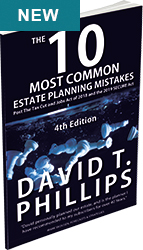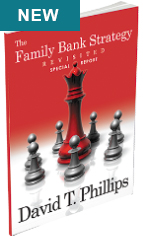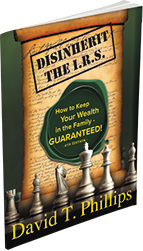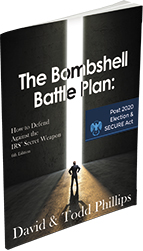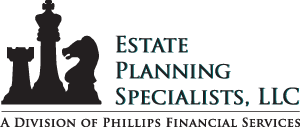
Glossary – Estate Planning Terms and Definitions
A
Adjusted Gross Estate - The gross estate less debts, administration expenses, and losses during administration.
Adjusted Taxable Estate - The adjusted gross estate less any marital and/ or charitable deductions.
Adjusted Taxable Gifts - Gifts that exceed the unified credit, or $600,000 exemption, and the annual gift tax exclusion. Gifted amounts over and above the exemption and annual exclusion at death are added back to the taxable estate and are subject to estate taxes.
Administration - The formal process of settling an estate. Various duties include valuing the estate, filing tax returns, paying taxes, and distributing assets to heirs.
Administration Expenses - Expenses incurred while administering an estate. These include legal fees, appraisal fees, and distribution and disposition costs.
After-born Child - A child born after the death of a parent.
Alternate Valuation Date - A date used by the personal representative to value a decedent's estate that is not to exceed six months after date of death. The value of the assets must be lower and result in a reduction of the gross estate and a reduction in the estate tax liability to qualify for its use.
Annual Gift Tax Exclusion - The right of each individual to make small annual gifts to other individuals each year to the extent of $10,000 (under current law). The number of these gifts is unlimited. These small annual gifts are in addition to the unified credit, or $600,000 exemption equivalent, amount. They do not reduce the unified credit, or exemption equivalent.
Ascertainable Standards - Involves the right of a surviving spouse to invade the family trust, or B trust, without causing the property to be included in his or her estate. The power is limited to such needs as health, education, maintenance, and support.
TOP
B
Basis - The original amount paid to acquire an asset or the fair market value of an asset on the date it was acquired.
Beneficiary - The persons and/or organizations that receive trust property after the death of the trust grantor; also refers to those who receive property under a contract (such as an annuity or life insurance policy) through a beneficiary designation.
Bequest - A specific bequest is a gift by will of a designated class or kind of property (e.g., a gift of the descendent's residence to a named individual). A general bequest is one that is accomplished from the general assets of an estate (e.g., a bequest of a sum of money without reference to any particular account or investment from which it is to be distributed).
Book Value - Value that equals assets less liabilities in valuing businesses. It is the net worth of the business.
B Trust - A trust created at death under a provision in the will (testamentary) or by provision in a trust. This trust is often referred to as the family trust and usually holds the unified credit, or exemption equivalent, amount (in spousal estates) of the first spouse to die. It also qualifies assets placed into the trust for the use of the unified credit.
Bypass Trust - A trust designed not to qualify for the unlimited estate tax marital deduction. Commonly referred to as the family trust, or B trust, it is designed to make use of the lifetime $600,000 exclusion (unified credit).
TOP
C
Capitalization of Earnings - The measure of earning capacity when valuing a business.
Charitable Deduction - A deduction allowed for a gift to a qualified charitable organization.
Charitable Gifting - Gifts of cash or other assets made to qualified charities (under the IRS definition) for which the donor receives various tax deductions.
Charitable Remainder Trust (CRT) - The donation of property or money to a charity, whereby the donor reserves the right to use the property or to receive income from it for a specified time. When the agreed-upon period is over, the property belongs to the charitable organization. The donor in turn receives various tax deductions and tax advantages. The most common CRTs are the charitable remainder annuity trust (CRAT) and the charitable remainder unit trust (CRUT).
Codicil - A revision, change, or modification to an existing will.
Community-Owned Property - Property acquired during marriage in which both husband and wife have an undivided one-half interest. Not more than one-half of community property can be disposed of by a will. The nine current community property states are Arizona, California, Idaho, Louisiana, New Mexico, Nevada, Texas, Washington, and Wisconsin.
Corpus - The principal property of a trust. Separate from trust income, it is property transferred to the trust and is also referred to as principal.
Credit Estate Tax - A state death tax imposed to take full advantage of the amount allowed as a credit against the federal estate tax.
Crummey Power - The power held by the beneficiary of a trust to withdraw a certain amount annually from the trust. This amount is limited to $5,000 or 5 percent of the trust corpus each year.
Curtesy - A man's entitlement through common law to all property held or owned by his wife. (See also dower.)
TOP
D
Death Tax - Tax imposed by the federal government that can be in excess of 55 percent and that is imposed by some state governments.
Deemed Transferor - The parent of the transferee most closely related to the grantor. A parent related to the grantor by blood or adoption is deemed closer than one related by marriage. This relationship is important in understanding the taxation of generation skipping transfers.
Devise - Legally, a gift of real estate under a will as distinguished from a gift of personal property.
Direct Skip - The transfer of assets or gifts made directly to second-generation beneficiaries, skipping the middle generation. For example, gifts made by a grandfather to a grandchild while skipping the grandfather's children.
Domicile - State and place of one's official residence.
Donee - The recipient of a gift, but may also refer to the recipient of a power of appointment and to an individual or entity capable of owning property.
Donor - A person who makes a gift or grants a power of appointment. Limited to individuals only.
Dower - A woman's entitlement to an interest in all the property of her husband that was owned during their marriage.
Dynasty Trust - An irrevocable life insurance trust (ILIT) used by wealthy people to create nontaxable generation skipping transfers to several generations.
TOP
E
Economic Recovery Tax Act of 1981 (ERTA) - A broad-based tax reform legislation signed into law under the Reagan administration. The legislation, as it pertains to estate planning, created the unlimited marital deduction, increased the estate and gift tax exemption, and restructured the estate and gift tax rates.
Estate Analysis - A formal written estate plan that analyzes estate taxation, property ownership, probate costs, current planning, etc., and formulates a plan to achieve various objectives. It is a road map for achieving the objectives, format, and execution of an effective estate plan.
Estate Freeze - Method whereby highly appreciating businesses and personal assets are shifted out of an estate so that future appreciation will not be included in the gross estate.
Estate Planners - Individuals who specialize and devote 100 percent of their time to the issues and practice of planning estates and whose backgrounds can vary from law to finance.
Estate Tax - A tax that may be imposed not only by the federal government but also by state governments on the right of a person to transfer property at death. This transfer tax is generally applicable to estates valued over and above the $600,000 exemption amount.
Estate Tax Base - An amount on which the federal estate tax is levied that is determined by subtracting the allowable expenses, deductions, and exclusions from the gross estate and adding back in any adjusted taxable gifts.
Estate Tax States - Those states that impose a death tax direct to the estate and do not share in revenues collected by the federal government.
Excess Accumulations Estate Tax - A 15 percent additional estate tax imposed on qualified retirement plans as a penalty for over funding these plans and not taking IRS guideline distributions.
Excess Distribution Tax - A 15 percent penalty tax on excessive distributions from a qualified retirement plan.
Exemption Equivalent - The unified credit amount (currently $600,000) that is exempt from estate and gift taxes. Each individual is allowed this exemption.
TOP
F
Fair Market Value - The value at which estate property is included in the gross estate for federal estate tax purposes; the price at which property would change hands between a willing buyer and a willing seller under any compulsion to buy or sell with both having knowledge of all the relevant facts.
Family Allowance - Money available from an estate for the testator's spouse and children while the estate is being settled.
Family Limited Partnership (FLP) - A legal entity that provides ultimate control and management of assets while at the same time providing asset protection.
Family Trust (See B trust)
Federal Estate Tax - An excise tax levied by the federal government on the right to transfer property at death. It is imposed on and measured by the value of the estate left behind by the deceased.
Fee Simple - Outright ownership of property with absolute rights to dispose of, or gift, it to anyone at death.
Fiduciary - A person in the position of great trust and responsibility such as the executor of a will or the trustee of a trust.
Five and Five Power - A provision that allows a trust beneficiary to withdraw the greater of $5,000 or 5 percent of the principal from a trust without causing the entire trust property to be included in his or her estate for federal estate taxation.
Foreign Asset Protection Trust - A revocable living trust established under the laws of a foreign country.
Foreign Death Tax Credit - A credit against estate and gift taxes on an amount that is paid to foreign governments as a death tax.
Formal Written Estate Plan Summary (See estate analysis)
Format - The planning tools used in the process of estate planning. Trusts, wills, CRTs, etc., are all estate planning formats.
Funded Insurance Trust - An insurance trust provided with income producing property, the income from which is used to pay the premiums on the policies held in the trust.
Future Interest - The postponed right of use or enjoyment of property.
TOP
G
Generation-Skipping Transfer (GST) - A transfer of property, usually in trust, that is designed to provide benefits for two or more generations of beneficiaries who are younger than the generation of the grantor.
Generation-Skipping Transfer Tax (GSTT) - A transfer tax generally assessed on gifts in excess of $1 million to grandchildren, great-grandchildren, or others at least two generations below the donor.
Gift Splitting - A provision allowing a married couple to treat a gift made by one of them to a third party as having been made as one-half by each, provided it is consented to by the other on a gift tax return.
Gift Tax Marital Deduction - A deduction allowed for a gift made by one spouse to another. Outright gifts and life estates qualify for the deduction if the donee has the right to the income from the property for life and a general power of appointment over the principal. Certain qualified terminable interest gifts also qualify. The amount of the deduction is unlimited.
Grantor - The person who establishes a trust who is also called the creator, settlor, donor, or trustor.
Gross Estate - The total value of all property in which a deceased had an interest that must be included in his or her estate for federal tax purposes.
Guardian - A person appointed to have custody over the person or the property or both of a minor or incapacitated person.
TOP
H
Health, Education, Maintenance, and Support (HEMS) - (See ascertainable standards)
Heir - A person who is entitled to inherit assets of the decedent when the decedent left no will; also specified as next of kin.
Holographic Will - A will written entirely in the testator's own handwriting.
TOP
I
Inheritance Tax - A tax imposed by a number of states that is based on the value of the property that taxpayers inherit. It is levied on the right to receive property, not on the right to transfer property.
Insurance Trust - A trust established to own insurance policies in order to prevent them from being included in an estate.
Intangible Property - Property that does not have physical value, such as a stock certificate or savings bond.
Inter Vivos Trust - A trust, also called a living trust, created during a person's lifetime. It operates during that person's lifetime as opposed to a testamentary trust, which does not operate until the grantor dies.
Intestacy Laws - Individual state laws governing the distribution of the property of a person who dies without leaving a valid will.
Intestate - A person who dies without having a valid will; that person is said to have died intestate.
Irrevocable Life Insurance Trust (ILIT) - A trust that cannot be changed or canceled once it is created.
Irrevocable Trust - A trust created for the permanent transfer of property.
TOP
J
Joint-and-Last-Survivor Life Insurance - A relatively new type of life insurance that provides an insurance benefit at the death of the surviving spouse or partner. Generally, this method of providing estate liquidity for married couples is the most cost-effective strategy. It is also known as survivorship insurance and second-to-die insurance.
Joint Ownership - Ownership that occurs when two or more people own the same property. The death of a joint owner immediately transfers ownership to the surviving joint owner(s).
Joint Tenancy - Ownership shared with an unlimited number of individuals whereby each tenant owns an equal undivided share of the property.
Joint Tenancy With Rights of Survivorship (JTWRS) - The holding of property by two or more individuals in a manner that, on the death of one tenant, the survivor or survivors succeed to full ownership by operation of law.
TOP
L
Lapse - The failure of a bequest in a will because the intended recipient died before the testator.
Last Will and Testament - The usual formal term referring to a will.
Legacy - A gift of personal property by will that is usually referred to as a bequest; the recipient is called the legatee.
Leverage - A true cost discount by which one can pay a few dollars now to create a significantly larger sum later.
Leveraged Dollars - The present use of a sum of money to create a true discount in the future; using current premium dollars now to create a large amount of dollars in the future in life insurance contracts.
Life Estate - The title to the income interest vested in a life tenant.
Life Insurance - Insurance customarily used to discount actual tax liability.
Life Interest or Life Estate - An interest that a person has in property enjoyed only during life.
Life Tenant - The person, often referred to as the income beneficiary, who receives the income from a legal life estate or from a trust fund during his or her own life or that of another person.
Limited Power of Appointment - A special power granted to a donee that is limited in scope as opposed to being general.
Liquid Assets - Cash or assets that can be easily converted into cash without any serious loss, such as bonds, life insurance proceeds paid in a lump sum, bank accounts, and certificates of deposit.
Liquidity - The measure of liquid assets. In estate planning it is detrimental to measure the amount of liquid assets available for paying death taxes and expenses. Living Trust - (See revocable living trust)
TOP
M
Marital Deduction - The portion of a deceased spouse's estate that may be passed to the surviving spouse without becoming subject to the federal estate tax.
Marital Trust - A trust consisting of the property that qualifies for the marital deduction.
Multiple Probate - Property owned by a decedent in states other than the state of domicile that will be subject to probate; usually refers to real estate owned in several states that becomes subject to each individual state's probate system at time of death.
TOP
N
Net Taxable Estate - The total value of an estate after all deductions have been subtracted.
Nonliquid Assets - Assets that are not easily converted into cash without the risk of serious loss, such as real estate, a business interest, or art objects.
Nonmarital (nonmarital deduction) Trust - A trust consisting of property that does not qualify for the marital deduction.
Nonprobate Property - Property passing outside the administration of the estate other than by will or intestacy laws. Examples include jointly held property passing by right of survivorship (law), life insurance proceeds payable to a named beneficiary (by contract), and property in a living trust (property not titled to an individual).
Nonresident Alien - Usually the noncitizen (alien) spouse of a deceased U.S. citizen. Special rules apply to prevent this spouse from removing property from the United States. Use of the marital deduction is usually not allowed unless certain conditions are met.
Nonskip - The transfer of property to the next-in-line generation such as when a father transfers property directly to his children as opposed to his grandchildren.
Nuncupative Will - An oral will dictated by the testator before witnesses during a final illness and later converted to writing.
TOP
O
Objectives - In estate planning, the formulation of each individual's needs and desires regarding distribution of his or her estate and the various intricacies involved in the transfer.
One Percent Solution - A formula involving 1 percent of the total gross estate to fund the purchase of life insurance inside an irrevocable trust. The purpose is to provide liquidity for estate tax payment or to replace the loss of estate property as a result of taxation on a leveraged basis.
Operation of Law - Assets that pass outside of a probate estate by certain ownership. Property held between spouses as joint tenants with rights of survivorship passes to the surviving tenant by operation of law.
Optimal Marital Deduction - Using the unlimited marital deduction in a trust arrangement to gain a tax liability of $0 at the death of the first spouse.
Outright Ownership - Complete ownership of property by an individual that can pass directly to another individual at death.
TOP
P
Payable on Death (POD) - An arrangement whereby a depositor elects that a sum of money or account be payable to named individuals on death; similar to a beneficiary arrangement.
Per Capita - A way of distributing an estate so that the surviving descendents will share equally regardless of generation.
Personal Representative - A person appointed by the court to settle an estate.
Per Stirpes - A way of distributing an estate so that the surviving descendents will receive only what their immediate ancestor would have received if he or she had been alive at the time of death.
Posthumous Child - A child born after its parents' death.
Pour Over - Refers to the transfer of property from one estate or trust to another estate or trust that is triggered by the occurrence of an event such as a death. For example, property disposed of by will can "pour over" into an existing trust.
Power of Appointment - The right given to a donee to dispose of property that the donee does not fully own within the limits set forth by the donor, which can cause the value of the asset to be included in the estate of a donee who holds the power of appointment.
Present Interest - As applied to a gift, the present right to use or enjoy the property. A gift must have this characteristic to qualify for the annual $10,000 gift tax exclusion.
Pretermitted Heir - A child or other descendant omitted from a testator's will.
Principal - The property funding a trust, from which income is expected to be earned. Trust principal is also known as res or corpus.
Probate - The process of providing the validity of a will in court and executing its provisions under the guidance of the court. When a person dies, the will must be filed before the proper officers of the court, giving the court jurisdiction in the matter to enforce the document commonly referred to as "filing the will for probate." When the will has been filed, it is said to be "admitted to probate." The process of probating a will involves recognition by the court of the personal representative named in the will (or appointment of an administrator if none has been named), the filing of proper reports and papers as required by law, determination of the validity of the will if it is contested, and distribution and final settlement of the estate under the supervision of the court.
Probate Property - Property that passes under the terms of a will. If there is no will, it passes under the state intestacy laws.
TOP
Q
Qualified Charity - A charity that qualifies to receive gifts for which an income tax charitable deduction is allowable.
Qualified Domestic Trust (QDOT) - A special trust to which assets are transferred so that a spouse who is not a U.S. citizen (a nonresident alien) will be entitled to claim the benefit of the unlimited marital deduction.
Qualified Terminable Interest Property (QTIP) - Property qualifying for the marital deduction at the election of the donor or the decedent's personal representative. The spouse retains a qualified income interest in the property for life, with the income payable at least annually. The corpus ultimately passes to a specified remainderman under a special power of appointment given to the spouse.
Qualified Terminable Interest Trust (QTIP trust) - A trust that qualifies for the unlimited marital tax deduction. No estate tax is imposed on the value of the property transferred to the surviving spouse in a QTIP trust on the first spouse's death as long as the surviving spouse receives all income at least annually. The purpose of the QTIP trust is to enable an estate to avoid tax while the grantor still designates who will receive the property remaining in the trust on the second spouse's death.
Quarterback - An estate planner who specializes in the practice of estate planning and who coordinates the entire effort for a client. The effort involves designing the plan, based on the objectives; suggesting a format; and executing the plan in conjunction with other professionals or providing outlets for the accounting, legal, and all additional aspects of execution.
TOP
R
Remainder Interest - A future interest that comes into existence after the termination of a prior interest. For example, individual A creates a testamentary trust under a will in which the principal is to be retained with income paid to individual B until B's death, at which time the principal or remainder interest will be passed to individual C.
Remainderman - The person entitled to receive the principal of a trust when the intervening life estate or estates terminate.
Remedy of Partition - The separation of shares of property held jointly by the direction of a court.
Residuary Estate - The remaining part of a decedent's estate after debts, expenses, and distributions have been made. Wills usually contain a clause on disposing of the residue of the estate that the decedent has not otherwise bequeathed.
Reverse QTIP - The use of a QTIP trust to preserve a decedent's $1 million generation skipping exemption.
Reversionary Interest - The possibility that property will return to the donor after it has been given away.
Reversionary Trust - A trust limited to a specified term of years or for the life of the beneficiary at the end of which period the trust is terminated and the property returned to the grantor.
Revocable Living Trust - A written legal document into which grantors place all their property with instructions for its management and distribution on their disability or death.
Revocable Trust - A trust that can be altered, amended, terminated, or revoked during the grantor's lifetime with all property being recovered by the grantor.
Right of Survivorship - Property held jointly whereby at the death of one joint owner, the other owner or owners succeed to full ownership by surviving under law.
TOP
S
Semiliquid Assets - Assets that can be converted to cash within a reasonable amount of time usually within one year.
Settlor - Another term for the grantor or creator of a trust.
Shrinkage - A reduction in the amount of property that passes at death caused by loss of capital and income resulting from payment of death costs. It may be greatly increased if assets must be sold for cash to pay such costs.
Skip Person - In generation skipping transfers, the person of the generation that is skipped. The child of a parent who makes gifts favoring only grandchildren is considered a skip person.
Sprinkling or Spray Trust - A trust under which the trustee is given discretionary powers to distribute any of the income among beneficiaries in equal or unequal shares and to accumulate any income not distributed.
State Death Tax Credit - A format of many states to calculate and collect their portion of state imposed death taxes.
Step-Up in Basis - A decedent's capital gains property that passes to others and escapes the capital gains tax when sold by the person who inherits the property. Persons inheriting capital gains property receive the property at date-of-death fair market value. In effect the basis in this property is deemed to be "stepped up" and does not reflect the decedent's original cost basis for determining applicable capital gains tax on the sale of the property.
Super Trust - A package of trust instruments that includes a revocable living trust, an A/B bypass trust, and an irrevocable life insurance trust.
TOP
T
Tangible Property - Property that has physical substance, such as a house or car.
Taxable Distributions - Distributions from qualified retirement plans that are fully taxable and that can also refer to distributions from a trust when working with generation skipping transfers.
Taxable Terminations - In generation skipping transfers, interests in trusts.
That Terminate (e.g., income rights)
Tax Reform Act of 1986 (TRA '86) - An encompassing tax act that made many changes in estate and gifting rules.
Tenancy by Entirety - Ownership of property by a husband and wife so that such property may not be disposed of during life by either spouse without the other's consent; at one spouse's death, the property goes to the survivor.
Tenancy in Common - Ownership of property by two or more persons so that each has an undivided interest and, at the death of one, is passed by will to the deceased's heirs. It does not pass automatically to the surviving tenants in common.
Terminable Interest - An interest in property that will terminate in the future; usually associated with the right to income from a trust that terminates at the death of the grantor.
Testamentary - At death.
Testamentary Trust - A trust set up in a will that only takes effect after death.
Testate - A person who dies with a will.
Testator, Testatrix - A person who dies with a will. A male is a testator; a female is a testatrix.
Transferee - The person receiving property transfers.
Transferor - The person who makes transfers of property to others.
Trust - An arrangement for holding legal property and managing the property for the benefit of another trustee. The holder of legal title to property for the management, use, or benefit of another.
TOP
U
Unfunded Insurance Trust - An insurance trust that is not provided with cash or securities to pay the life insurance premium, which is usually paid by someone other than the trustee.
Unified Credit - An amount up to $600,000 in assets that every taxpayer is allowed to exclude from the estate and gift tax.
Unified Credit Against Estate Tax - A credit of up to $192,800 in 1987 and later years that can be applied directly against the federal estate tax to the extent that it has not been applied to gift tax obligations.
Unified Credit Against Gift Tax - A credit of up to $192,800 in 1987 and later years that can be applied directly against the federal gift tax but thereby reduces the available unified credit against the estate tax.
Unified Credit Trust - A trust in spousal estates designed to hold part of or the full unified credit amount ($600,000) at the death of the first spouse. (See family trust)
Unified Probate Code - A standardized probate process adopted by many states in an effort to simplify the probate process.
Unitrust - (See charitable remainder trust)
Unlimited Marital Deduction - Property that qualifies as marital deduction property. Under ERTA, the ability to pass unlimited amounts of property that qualifies for the marital deduction became law. At present unlimited amounts of marital deduction property may pass to a surviving spouse without estate or gift tax consequences.
TOP
W
Wealth Replacement Trust (WRT) - An irrevocable life insurance trust that replaces the value of gifted assets made to charities used in conjunction with charitable remainder trusts (CRTs).
Wealth Transfer - Process and strategy for transferring property to others with minimal estate and gift tax liability.
Will - A written document with instruction for disposition of property at death that can be enforced only through the probate court.
